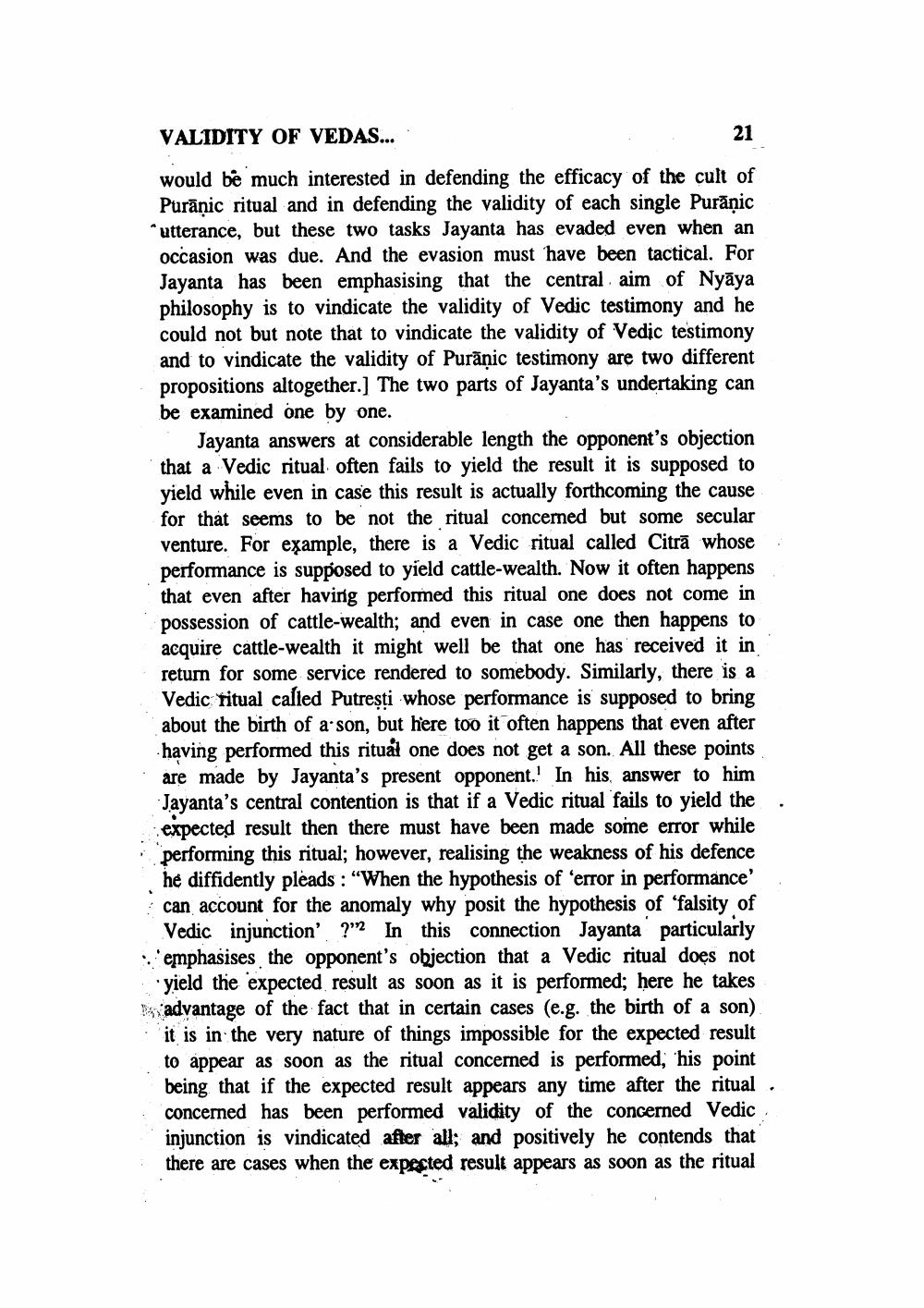________________
VALIDITY OF VEDAS...
21
would be much interested in defending the efficacy of the cult of Purānic ritual and in defending the validity of each single Purānic *utterance, but these two tasks Jayanta has evaded even when an occasion was due. And the evasion must have been tactical. For Jayanta has been emphasising that the central aim of Nyāya philosophy is to vindicate the validity of Vedic testimony and he could not but note that to vindicate the validity of Vedic testimony and to vindicate the validity of Purāņic testimony are two different propositions altogether.) The two parts of Jayanta's undertaking can be examined one by one.
Jayanta answers at considerable length the opponent's objection that a Vedic ritual often fails to yield the result it is supposed to yield while even in case this result is actually forthcoming the cause for that seems to be not the ritual concerned but some secular venture. For example, there is a Vedic ritual called Citrā whose performance is supposed to yield cattle-wealth. Now it often happens that even after having performed this ritual one does not come in possession of cattle-wealth; and even in case one then happens to acquire cattle-wealth it might well be that one has received it in return for some service rendered to somebody. Similarly, there is a Vedic ritual called Putresti whose performance is supposed to bring about the birth of a son, but here too it often happens that even after having performed this ritual one does not get a son. All these points are made by Jayanta's present opponent.! In his answer to him Jayanta's central contention is that if a Vedic ritual fails to yield the expected result then there must have been made some error while performing this ritual; however, realising the weakness of his defence he diffidently pleads : “When the hypothesis of 'error in performance' can account for the anomaly why posit the hypothesis of 'falsity of Vedic injunction' ?!? In this connection Jayanta particularly emphasises the opponent's objection that a Vedic ritual does not yield the expected result as soon as it is performed; here he takes advantage of the fact that in certain cases (e.g. the birth of a son) it is in the very nature of things impossible for the expected result to appear as soon as the ritual concerned is performed, his point being that if the expected result appears any time after the ritual. concerned has been performed validity of the concerned Vedic injunction is vindicated after all; and positively he contends that there are cases when the expected result appears as soon as the ritual




